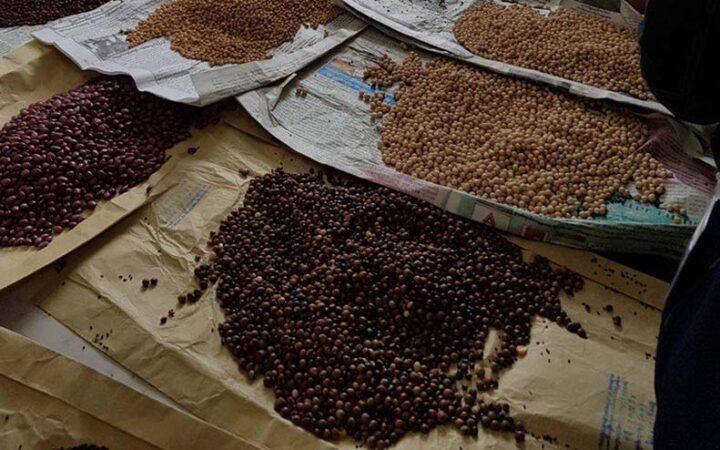August 29, 2022
The prices of black gram are moving onwards following the Central Bank of Myanmar’s hike in reference exchange rate. Black gram prices hit over K1.9 million per tonne in the domestic pulses market.
On 1 August, the black gram fetched only K1.666 million per tonne. On 27 August, the prices skyrocketed to K1.9 million per tonne. The figures showed an increase of over K230,000 per tonne in a month.
Similarly, pigeon pea price jumped from K1.58 million to K1.99 million per tonne on 27 August, showing a significant rise of K410,000 per tonne within four weeks.
According to a Memorandum of Understanding between Myanmar and India, India will import 250,000 tonnes of black gram and 100,000 tonnes of pigeon pea (tur) from Myanmar for five consecutive years from 2021-2022 financial year to 2025-2026 FY.
The prices of black gram in Myanmar is correlated with India’s demand, fuel price hike and Kyat value against the hard currency US dollar.
Last September 2021, the prices hit a record high of K2 million per tonne when the US dollar exchange rate with Myanmar currency hit over K3,000 in the local forex market.
Myanmar conveyed $481.6 million worth of over 622,780.79 tonnes of beans and pulses to foreign trade partners between 1 April and 19 August 2022 in the current financial year 2022-2023. The country shipped $386.935 million valued over 482,393.83 tonnes of pulses and beans to foreign markets through sea route, and $94.67 million valued over 140,386 tonnes were sent to the neighbouring countries through land border.
Myanmar exported US$1.57 billion worth of over 2 million tonnes of various pulses to foreign trade partners last financial year 2020-2021. The country shipped $966.4 million valued 1.24 million tonnes of pulses and beans to foreign markets through sea route, and $604.3 million valued 786,920 tonnes were sent to the neighbouring countries through land border.
Myanmar yearly produces approximately 400,000 tonnes of black gram and about 50,000 tonnes of pigeon peas.—NN/GNLM



